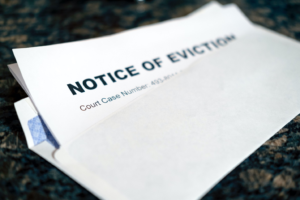
Facing a possession hearing can be a daunting and stressful experience. Whether you are a tenant defending against eviction or a property owner seeking to regain possession of your property, adequate preparation is crucial to ensure a fair and just outcome. Understanding the legal process, gathering evidence, and knowing your rights can significantly impact the result of the hearing.
At Landlord Assist, we can help you prepare for your possession hearing with their landlord legal services. This blog discusses the essential things you need to know about preparing for a possession hearing.
1. Familiarise Yourself with Local Laws and Regulations
Possession laws can vary significantly depending on your jurisdiction, so it is essential to familiarise yourself with your area’s specific laws and regulations. The rules governing possession hearings, eviction procedures, and tenant rights can be complex. They may have particular requirements that must be met. Contact a local attorney or legal aid organisation if you need guidance on the relevant laws and how they apply to your case.
2. Review the Lease Agreement
Review your lease agreement thoroughly if you are involved in a possession hearing as a tenant. Pay close attention to the terms related to the reasons for eviction, notice requirements, and any conditions that might have been violated. Understanding the specifics of your lease agreement will help you prepare a solid defence and counter any claims made by the other party.

3. Gather All Relevant Documentation
Both tenants and property owners should collect all relevant documentation related to the case. This may include the lease agreement, rent receipts, communication with the other party (letters, emails, or text messages), photographs of the property’s condition, and any notices or warnings served. Having well-organised and comprehensive documentation will strengthen your position during the possession hearing.
4. Seek Legal Advice
Even if you feel confident about understanding the laws and your rights, seeking legal advice before the possession hearing is always advisable. An experienced attorney can provide expert guidance, ensure you’ve covered all essential aspects of your case, and represent you effectively during the hearing. If you cannot afford an attorney, look for local legal aid organisations that can provide free or low-cost assistance.
5. Know the Grounds for Eviction
For landlords seeking possession, it is crucial to understand the legal grounds for eviction clearly. Common grounds for eviction include:
- Non-payment of rent.
- Lease violations.
- Property damage.
- Illegal activities on the premises.
- The end of a lease term.
Ensure you have evidence to support your claim and follow all legal procedures when serving eviction notices.

6. Respond to Notices Promptly
Tenants who receive an eviction notice must respond to it promptly. Failure to respond within the specified timeframe could result in an automatic judgment in favour of the landlord. If you disagree with the reasons for eviction stated in the notice, be prepared to present your arguments and evidence during the hearing.
7. Dress and Behave Professionally
A possession hearing is a formal legal proceeding; treating it as such is essential. Dressing appropriately and being professional can create a positive impression on the judge and may influence the case outcome. Be respectful, avoid interruptions, and follow the court’s procedures and guidelines.
8. Prepare Your Testimony
If you are a party to the case, whether as a tenant or a landlord, be prepared to present your testimony clearly and concisely. Think about the points you want to make, and practice your responses to potential questions. Stay focused on the relevant facts and avoid emotional outbursts, as they may not work in your favour.
9. Bring Witnesses
If there are witnesses who can support your case, consider bringing them to the hearing. Witnesses could be other tenants, neighbours, maintenance personnel, or anyone with relevant information. Ensure that your witnesses are prepared to provide truthful and accurate testimony.

10. Be Open to Settlement Negotiations
Sometimes, settlement negotiations before or during the possession hearing may be possible. Both tenants and landlords should be open to exploring these options. A settlement can save time, money, and emotional stress, allowing both parties more control over the outcome. However, always accept a payment that you believe is fair or unjust.
Call Landlord Assist for Expert Tenant Eviction Services
Are you facing a challenging possession hearing in Kent? Let our award-winning team of property experts at Landlord Assist guide you through the process. Furthermore, our sensitive and results-driven approach ensures your needs are at the heart of everything we do. Whether you need rent arrears solicitors Kent, landlord legal services Kent, or debt recovery, our experienced team is here to bring you peace of mind.
Visit our website to learn more about our services.






